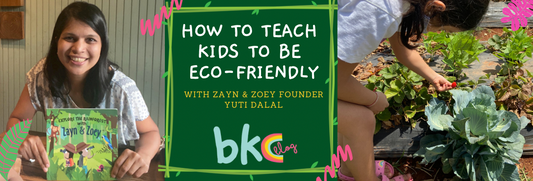If we say ‘family tradition’, do you immediately have a memory that pops into your mind? We definitely hope you do! A family tradition can be anything under the sky – breakfast for dinner, a Sunday morning picnic, Saturday night pizza, etc. These traditions play an important part in shaping your child’s identity, developing a sense of community, and so much more. In this article, we discuss the importance of family traditions, and even different ideas for you to try with your child.

It’s a Saturday evening and the whole family gathers in anticipation of another game night. There is a new game that they have all been waiting to play, and with that comes the promise of laughter, silly arguments, and oodles of fun! The children are excited and jumpy, and the adults can’t help but smile at their enthusiasm. They know this is building many core memories. This is their family tradition!
Family traditions can be anything from game nights to vacations, and even cultural traditions. It is a time for the whole family to come together and share an experience. Some traditions can be passed from generation to generation, and some can be family specific. It is important that everyone enjoys participating, and that the tradition reflects a family’s interests, values, or beliefs.
What role do these traditions play in the lives of children? Read on to find out.
The Importance of Family Traditions
1. Creates a Sense of Belonging
Family traditions celebrate the whole family. They foster a sense of belonging in children as they feel a part of something special and something bigger. This creates a sense of security as well, and can help boost children’s self-worth and confidence.
2. Brings Balance and Stability
In an ever-changing world, having habitual traditions can create a sense of stability and grounding for children. It also helps them wind down after a week of school and other activities.
Psst, this is a great way for adults to maintain their work-life balance too!
3. Strengthens Family Dynamics
We all have our differences, even in a family. Creating new family traditions can nurture each person’s individuality, and also provide a space for bonding and connecting over a shared experience. This fosters positive family dynamics in the long run.

4. Helps Build Character
Traditions encourage trust, respect, and commitment. Children who participate in regular family traditions build these qualities from a young age. Sometimes, there may be disagreements and conflicts as well; this gives children the opportunity to learn how to handle conflicts better, and also voice their own opinions while staying respectful and mindful of others.
5. Communicates the Value of Family
Creating a family tradition requires involvement and commitment from all the family members. Family traditions are occasions where the whole family gets to bond and even discuss things, without external interruption (work calls, school work, friends, etc). This strengthens the relationship between each individual and creates a safe environment for children. When traditions are regularly practised, they help embed the value and importance of family in children, right from an early age.
6. Connects with Culture and Spiritual Wellbeing
Traditions act as bridges between culture, spirituality, the past, and the present. Some traditions can help pass on the culture of a family from generation to generation. Creating new traditions from old ones also helps children see that it is okay to have new beliefs that can be incorporated into the same tradition, if needed. Feeling included can help boost a child’s emotional, mental, and spiritual well-being.
Fun Ideas for Family Traditions
1. Make a Meal Together
Once a week, the whole family can get together and make one meal – it could be Friday night dinner, or Sunday morning breakfast. Let everyone get their chef hats on, and you can collectively decide the menu. If the little ones are too young to cook, they can help by setting the table, or helping out with small tasks. The best part? You may end up with pancakes, salad, and french fries for breakfast!
2. A Sunday Picnic
Make Sundays picnic day! Pack a basket with juice cartons, sandwiches, and yummy treats, and head out for a day of fun under the sun. If you live by a beach, you can spend the morning at the beach, maybe even go for a swim! Or you can also visit the neighbourhood park! If these are still not close by, you can always make a cosy space for a picnic on your lawn, balcony, or rooftop!

3. Weekend “Camping Out”
We all may not have a ‘camping area’ that is close by or accessible easily, but hey, that doesn’t have to spoil the camping experience! All you need is some imagination to recreate this experience at home! If you have a lawn or backyard, you can pitch a tent and watch the stars in the night sky together. If you don’t have the space to camp outdoors, just camp indoors! Rally your kids together to “build” a tent using bedsheets and your living room furniture! Add some fairy lights for a night sky feel, and you’re all set.
4. Family Movie Night
Once a month, plan a fun family movie night. Pick a movie that everyone wants to watch, get the popcorn and snacks ready, and enjoy an evening of fun! As a special treat, your little ones will get to push their bedtime a little later one night in a month.

5. Game Night
Game nights are the best way for families to communicate, bond, and spend time with each other. Pick a few games and get ready for an evening of laughter and fun! Games are also a great way for children to learn new rules, communicate with the whole family, voice their opinions, and even engage in conflict management.
6. ‘Show and Tell’ Talent Show
Children love imaginative play and make-believe games. Get the whole family together and put on an entertainment show – show and tell, dance, music, or a display of any talent each family member has! The little ones can even create programmes for the whole show and you can end the evening or afternoon by ordering-in some delicious food!

7. Family Scrapbooking
Come together at regular intervals and build a family scrapbook. You can add pictures of family get-togethers, family members, special events, and can even add notes, stickers, and ribbons to make it a fun art project. This can help the family to bond, and also allows your child to reflect on all the special memories you have made together as a family.
8. Any Physical Activity
Start a tradition of doing some physical activity together every week. You can choose a sport, or even go hiking, or cycling. You can even have your kids choose different activities each week from a list to keep things interesting. Doing a physical activity together is a great way to bond while ensuring the whole family stays active. This adds regular exercise to your child’s routine, therefore making it a lifelong habit.

9. Breakfast in Bed
Make your child, mum, dad, or grandparent feel extra special on their birthday, or anniversary, by bringing them their favourite breakfast in bed. This is a fun tradition that can be passed on from generation to generation.
10. Creating Crafts Together
Bring out the glue sticks, paper, and art supplies, and spend a morning of creative fun. You can make cards, mobiles, sand art, and so much more! This allows your child’s creativity to unfurl, and is fun for the whole family too.
Family Traditions That Are Passed Down Generations
At times some traditions stay in a family across different generations. These traditions provide opportunities for the new generations to hear stories about these traditions, how they started, how different family members were a part of it, and how they may have changed a little over the years.
Some traditions that are common even today, include:
Visiting Extended Family During Vacations
With many families being nuclear, vacations are the best time to visit extended family and get to know them better. On these vacations, we create shared memories with our cousins, aunts, uncles, and other family members. This is a great way to bond, and to learn more about them, their lives, and even the shared past of the whole family.
Making Sweets for Festivals
Festivals are a time of celebration, upkeeping traditions, and coming together. It is tradition in a lot of families to make sweets together, or even cook a large meal together to celebrate different festivals. This is a great way for the younger children to learn about these cultural practices and customs from their elders.

Visiting Places of Worship
An age-old tradition has been going to different places of worship with one’s family. This helps children understand the beliefs of their family, and even build their own values and beliefs.
With busy schedules, work demands, and fast-paced lives, it is important to make sure that everyone blocks enough time to make sure they are able to keep family traditions going. Sometimes it may be necessary to skip one day, but this should be kept to a minimum. Making sure there is consistency is the only way to ensure that these activities become traditions.
To ensure continuity of family traditions, it is important to ensure that to keep them simple, easy to prepare for, adaptable to changing needs, and most importantly enjoyable for all! Anything can become a tradition, as long as it inspires the core values and interests of each individual. These traditions are fun for children, and also help create core memories. Happy core memories lead to happier individuals! Every tradition counts.




